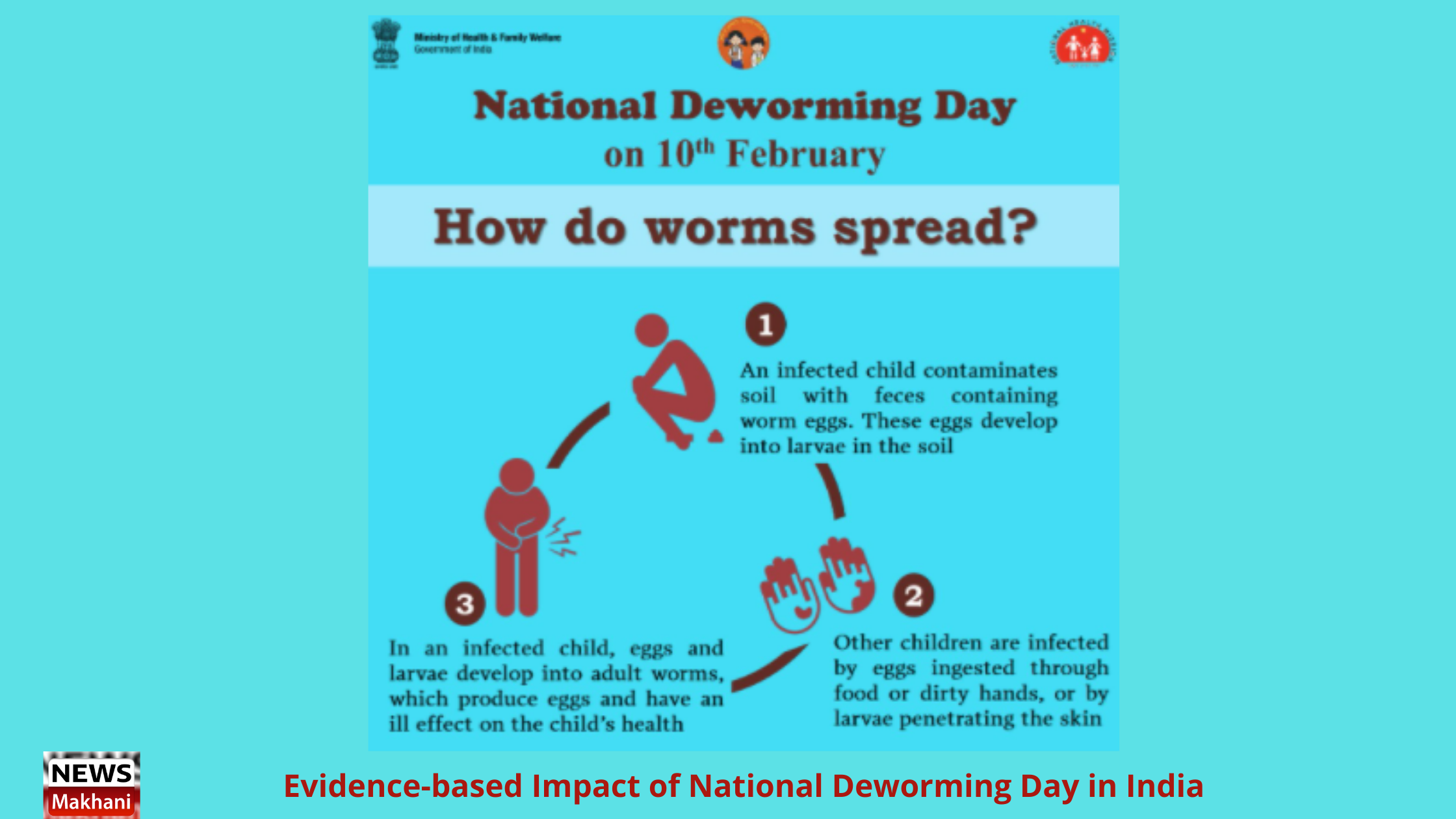Evidence-based Impact of National Deworming Day in India
New Delhi, October 20
Soil-Transmitted Helminthiases (STH), also known as parasitic intestinal worm infection, is a significant public health concern mostly in low resource settings. These are known to have detrimental effects on children’s physical growth and well being and can cause anemia and under-nutrition. Regular deworming as advised by the World Health Organization eliminates worm infestation among children and adolescents living in areas with high STH burden, thereby contributing to achieve better nutrition and health.
Since its launch in 2015, the National Deworming Day (NDD) is a flagship program of the Ministry of Health and Family Welfare. It is implemented as a biannual single day programme implemented through the platforms of schools and anganwadis. Albendazole tablet, approved by World Health Organization (WHO), is used for treatment of intestinal worms in children and adolescents as part of Mass Drug Administration (MDA) programmes globally. In the last round of deworming earlier this year in the country (which was halted due to the COVID pandemic), 11 crore children and adolescents were administered Albendazole tablet across 25 States/UTs.
As per WHO Report on STH published in 2012, in India there were an estimated 64% children in the age group (1-14 years) at risk of STH. The risk was estimated based on the hygiene and sanitation practices and limited STH prevalence data at that point of time. To assess the exact burden of STH in India, the Ministry of Health and Family Welfare appointed the National Centre for Disease Control (NCDC) as the nodal agency to coordinate and conduct nationwide baseline STH mapping. In collaboration with partners and government agencies, NCDC completed the baseline STH mapping across the country by the end of 2016. The data showed varied prevalence ranging from 12.5 % in Madhya Pradesh to 85% in Tamil Nadu.
To evaluate the impact of the consistently implemented high coverage NDD programme, the Health Ministry recently initiated follow-up prevalence surveys led by NCDC and partners. They were guided by the High Level Scientific Committee (HLSC) appointed by the Ministry. As on date, the follow-up surveys are completed in 14 States. All 14 States have shown reduction in the follow up survey compared to the baseline prevalence survey and the State of Chhattisgarh, Himachal Pradesh, Meghalaya, Sikkim, Telangana, Tripura, Rajasthan, Madhya Pradesh and Bihar have shown substantial reduction in worm prevalence in the STH follow up prevalence survey.
For example, the State of Chhattisgarh has successfully conducted 10 rounds of NDD as on date, and the drop in prevalence has been significant from 74.6 in 2016 to 13.9 in 2018. Similarly, Sikkim, with 9 rounds, has seen reduction from 80.4 in 2015 to 50.9 in 2019; Andhra Pradesh has, however, seen limited reduction from 36 in 2016 to 34.3 in 2019 with a total of 9 rounds. Rajasthan, the State that implemented an annual round only due to low baseline of 21.1 in 2013 has seen significant reduction to the level of less than 1% in 2019 as per the survey.
While further analysis is being led by the HLSC and the experts at the NCDC, the recommendations of the WHO decision tree for STH control with regard to treatment frequency is being carefully considered, to align with the program factors and ability to sustain gains that have been made so far.
Implementation of NDD is led by the Ministry of Health and Family Welfare, in collaboration with the Ministry of Women and Child Development, Ministry of Education and technical assistance from WHO and the technical partners. This Health Ministry is committed to continuing essential health services while managing the COVID-19 pandemic. As schools and Anganwadis remain closed, frontline health workers are trained to follow COVID-19 safety guidelines while administering Albendazole tablets to children and adolescents (1-19 years) during home visits or through staggered Village Health Sanitation and Nutrition Day (VHSND) based model between August and October 2020. The revised approach is applicable during COVID-19 to maintain continuity of deworming efforts in the country while minimizing risks related to the pandemic.

 हिंदी
हिंदी






